Embed presentation
Downloaded 19 times
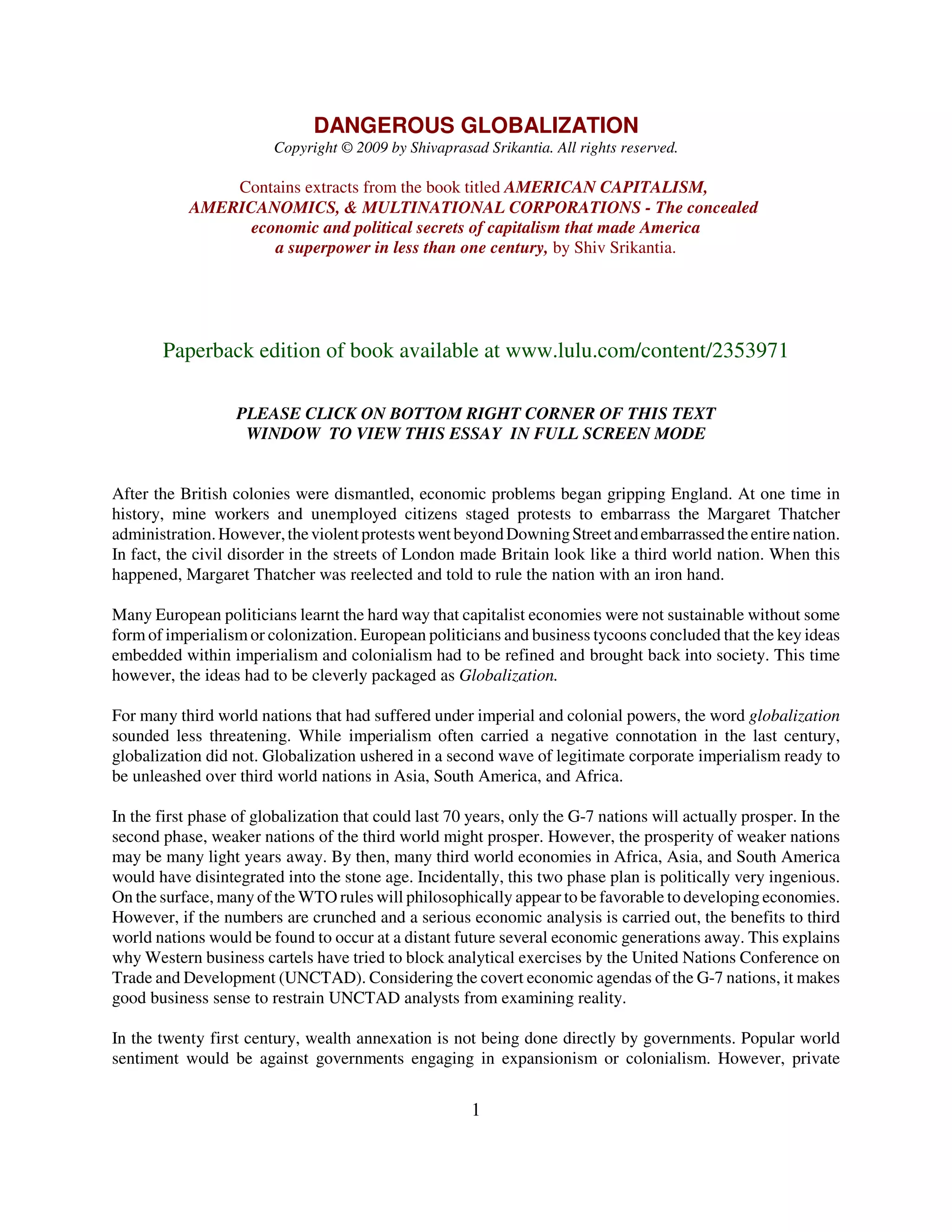
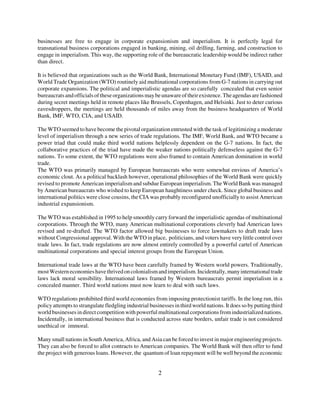
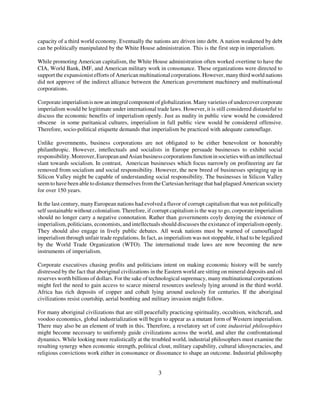
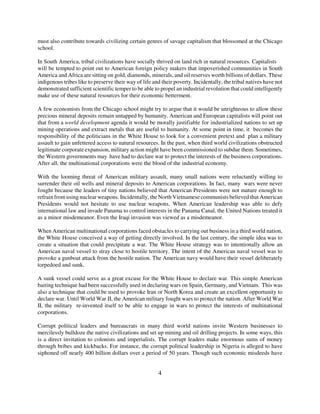
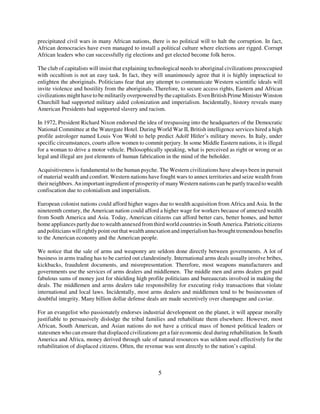
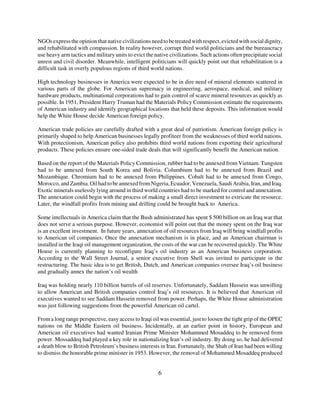
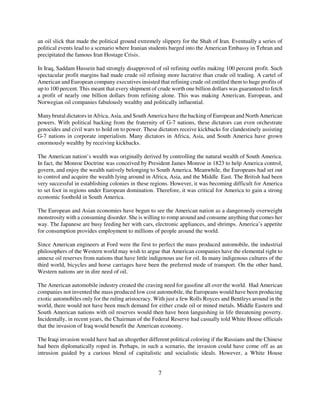
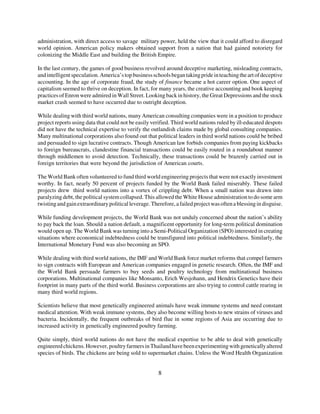
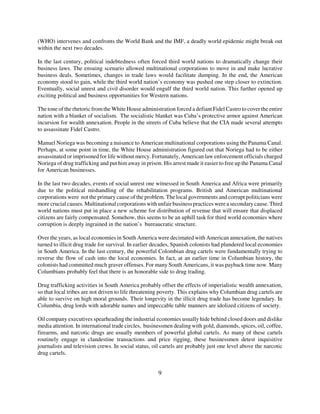
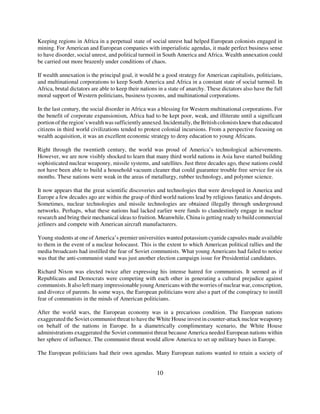
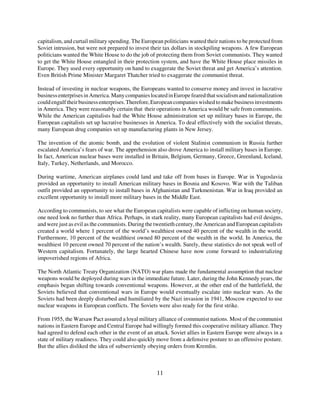
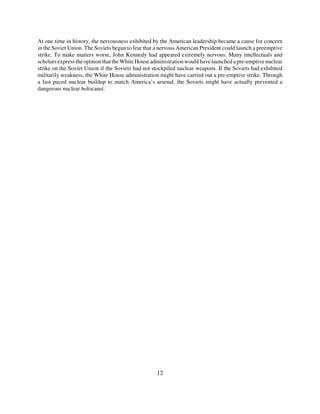
This document discusses how globalization has enabled a new wave of corporate imperialism by Western nations over third world countries. It argues that international trade laws and organizations like the WTO and IMF have been crafted by Western powers to benefit their multinational corporations through policies like prohibiting protectionist tariffs in developing nations. This allows Western corporations to outcompete local businesses. It also suggests that Western nations have used military force covertly and overtly to gain access to third world resources and markets when faced with resistance from local populations and governments.











